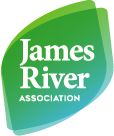On March 1st, Virginia’s General Assembly closed out its 2021 legislative session. This year, one critical task took precedence: meeting the needs of a Commonwealth still grappling with the impacts of the global COVID-19 pandemic. JRA helped keep clean water and conservation a priority by reminding lawmakers that healthy watersheds protect public health and promote economic recovery in some of Virginia’s hardest hit communities.
Investing in Healthy Rivers and a Restored Chesapeake Bay
Virginia has until 2025 to meet its pollution reduction commitments for the Chesapeake Bay cleanup effort. We’ve made significant progress since we began, but our cleanup plan tells us that we have to pick up the pace in these final few years. That takes major investments in clean water programs, and the General Assembly delivered a historic $200 million for the coming fiscal year:
- $100 million for upgrading pollution removal technology at wastewater treatment facilities, to deliver cleaner water to the James River and the Chesapeake Bay. This funding joins an additional $50 million for wastewater improvements approved by the General Assembly in 2020.
- $69 million for the Water Quality Improvement Fund, including $65 million for installing conservation practices on agricultural lands to keep nutrients in the soil and reduce runoff, plus up to $10 million more from recordation fees.
- $25 million for the Stormwater Local Assistance Fund, which helps urban and suburban localities install stormwater management projects by providing matching state dollars. This investment joins $50 million in stormwater funding approved last year.
- $12 million for the Department of Environmental Quality (DEQ) to increase monitoring, enforcement, and equitable public outreach for programs that protect our air, land, and water.
JRA also helped secure
- $250,000 for environmental literacy programs, which empower students with knowledge and skills to become stewards of their local watershed and meet the new climate challenges facing our environment;
- $60,000 to support a study of PFAS chemical contamination in drinking water by Virginia’s Department of Health (VDH); and
- $290,000 for additional tree seedlings at a state-run tree nursery to support more forested buffers along our streams and rivers.
JRA’s Legislative Priorities for Clean Water and Healthier Communities
- Reducing wastewater pollution in the James River Basin – Over the many years that Virginia has worked to restore the Chesapeake and its tributaries, wastewater treatment upgrades have proven to be the most effective, reliable and immediate pollution reductions we can achieve. But the James continues to suffer from less stringent wastewater treatment standards when compared to other Chesapeake Bay tributaries. JRA helped negotiate a new compromise (SB1354 and HB2129) with scheduled upgrades aimed at meeting more stringent treatment technology standards across facilities primarily located in the James River basin. These upgrades will deliver cleaner water to the James and help Virginia meet its Chesapeake Bay goals.
- Delaying new access fees for public boat ramps – Last year, lawmakers authorized the Department of Wildlife Resources to collect access fees for use of agency-owned boat ramps. This summer, with little notice and no meaningful public outreach, DWR announced a one-size fits all fee for paddle-craft users. JRA joined many members of the river enthusiast community in sharing concerns about the way in which DWR chose to assess these fees, and the unintended consequences this fee structure would have on outfitters, environmental education, and equitable access to a public resource. JRA worked with members of the budget committees to place a pause on the new fees and ensure an inclusive stakeholder workgroup examines strategies that will prevent any fees from becoming a barrier to access for low-income communities.
- Equitable protection from untreated wastewater – Estimates suggest that there are more than 500,000 households across Virginia with septic systems that are over 40 years old. Many were designed to meet antiquated health and environmental safety regulations and are now threatened by changing environmental conditions like sea level rise. These aging systems may be failing to hold and treat raw sewage, sending pathogens and nutrient pollution into our communities and waterways. JRA urged legislators to pass SB1396 by Senator Hashmi, which prioritizes universal wastewater treatment access to protect public health and the environment, and to support local economic growth. It unlocks funds to help low-income households repair or replace failing septic systems, and it lets VDH consider the impacts of climate change and sea level rise when setting design and permit requirements
- Smarter water use management – DEQ is charged with ensuring the sustainability of Virginia’s water resources by assessing our current water needs and planning for how we can continue to meet those needs in the future. In its 2020 report on the status of Virginia’s water resources, DEQ found that some localities were losing significant amounts of water within their system, but water providers are not required to audit their systems for water loss or have a plan for finding and repairing leaks. Under SB1291 (Senator Mason), any application for a permit to withdraw surface water or groundwater will now include a water auditing plan and a leak detection and repair plan.
- More tools to help farmers adopt conservation practices – Virginia’s Chesapeake Bay Cleanup plan calls for increasing the pace of installing agricultural best management practices on farmland by 2025. Virginia’s cost-share program is an essential tool for securing these practices and the pollution reductions they provide. But when funding runs short or for farmers that can’t accept cost-share for religious reasons, tax credits provide an important alternative. JRA supported three bills (SB1162 and SB1163 from Senator Hanger and HB1763 from Delegate Wilt) that will expand these tax credits and increase the incentive for farmers to adopt these voluntary measures.
- Keeping plastic out of our waterways – Two long-standing priorities for the environmental community finally made it across the finish line this year. Delegate Carr’s bill, HB1902, will phase out single-use expanded polystyrene food containers. Commonly called styrofoam, these products make up a disproportionate amount of the trash making its way to our rivers and streams, where it can break down into microplastic particles and be ingested by fish and humans. Delegate Guy’s legislation, HB2159, makes it clear that intentionally releasing a balloon is prohibited within the Commonwealth. Balloons litter our beaches and harm our wildlife, but until now, state law allowed the release of up to 49 balloons per hour!
- Helping localities tackle stormwater and flooding – JRA supported SB1404, a bill from Senator Lewis that helps more stormwater projects compete for state funding and allows the state to absorb more of the cost for fiscally stressed communities. We also supported Senator Ebbin’s bill (SB1309) that allows localities to use their local stormwater management funds for projects that treat stormwater, prevent erosion, and mitigate flooding. The bill also urges localities to prioritize nature-based solutions for these problems.
- More trees, please – Two bills (SB1393 and HB2042) will help localities preserve existing trees and require additional canopy cover to treat stormwater, mitigate flooding, and lower the temperature in “urban heat islands.” These bills won’t go into effect until after stakeholders meet to discuss the details and lawmakers take another look at the legislation in 2022.
- More native species, too – Delegate Bulova introduced a resolution (HJR527) to study ways of phasing out the sale of invasive plant species and encouraging the use of more native vegetation. As a member of the Invasive Plant Task Force removing invasive species from Richmond’s James River Park System, JRA supported this resolution and looks forward to the results of the study.
Looking to 2022
While we had some great successes during the 2021 General Assembly, we also saw some notable setbacks, especially on environmental justice. Four bills focused on the fair treatment and meaningful involvement of all people in the development, implementation, and enforcement of environmental protections didn’t make it through both chambers of the legislature. JRA urged lawmakers to pass bills by Senator Hashmi and Delegate Simonds (SB1318 and HB2074) that would have expanded the Virginia Environmental Justice Act and codified an Environmental Justice Interagency Working Group. We also supported bills by Senator McClellan and Delegate Hayes (SB1373 and HB2221) that would have helped communities learn about proposed projects and their potential for pollution before the permitting process begins to promote a meaningful say in planning and development. We’re disappointed that these policies weren’t successful this year, but we’re hopeful that the lessons we learned will help us pass even stronger legislation next year.
Help strengthen the voice for the river by joining our Action Network. We’ll keep you up to date on the latest river policy issues and connect you to your elected officials so you can let them know that water quality is important to you.

